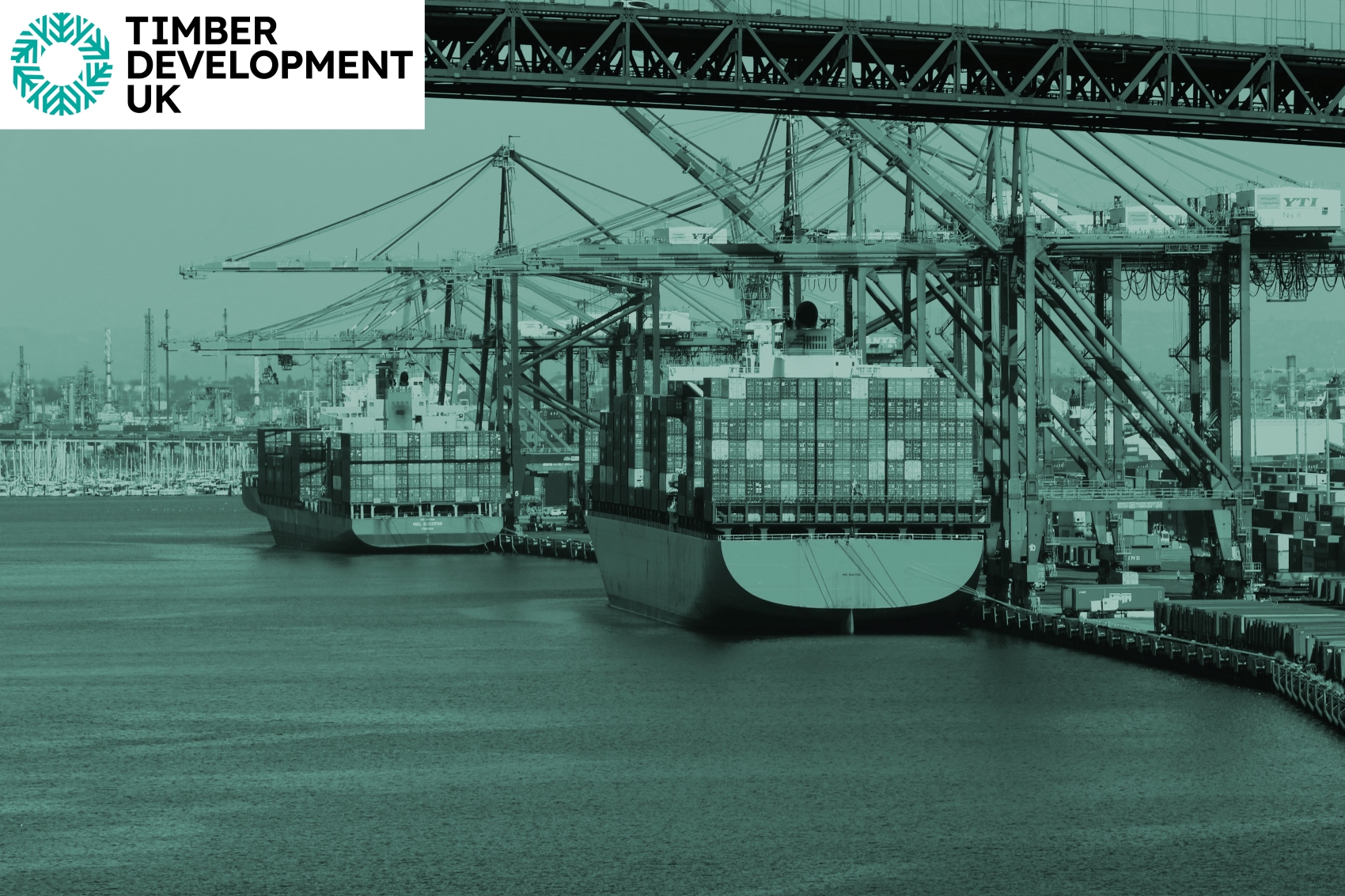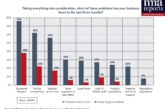
May has been the best month of 2024 so far for timber import volumes, according to recently-published Timber Development UK (TDUK) statistics.
Although volumes in May 2024 haven’t quite matched the high point of 969,000m3 seen in May 2023, at 897,000m3 it remains the best month of 2024 so far. Covering the period January to May, volumes are approximately 4% down on those seen in 2023.
For May 2024 specifically, volumes were down 7% on those seen in May 2023, following a 5% increase on 2023 levels enjoyed during April.
Overall, timber import volumes have weakened over the last two years. A sluggish UK economy and a reduction in construction output have contributed to these weaker volumes, but the long-term trend for timber and panel imports remains positive.
The over-arching performance of UK imports is weighted heavily towards softwood imports, which account for 62% of all volumes. Softwood imports were 4% lower, but some products have seen import levels grow. For example, planed spruce imports (45% of all softwood imports) were 3% higher, driven by good growth from Sweden (+4%), Latvia (+17%), Ireland (+18%) and Norway (+104%).
Price reductions of between 5% and 15% have contributed to growth from Latvia, Ireland and Norway, while Sweden has achieved good growth while maintaining prices.
Hardwood imports in the first five months of 2024, meanwhile, were around 20,000m3 lower than during the same period in 2023. Three-quarters of this reduction is due to lower volumes from Latvia and the USA. France, Estonia, Romania, Cameroon and the Congo Republic have all increased their volumes exported to the UK in 2024 to date, albeit by relatively small amounts.
In the first five months of 2024, tropical hardwood imports were a little less than 3% below the volume over the same period in 2023 – amounting to around 1,000m3. The largest contributors to this reduction were the Democratic Republic of the Congo and Malaysia.
Although timber and panel imports remained subdued, some specific types of timber and panels have seen outstanding performance.
Twenty years ago, China held a 25% share of supply of hardwood plywood imports. In 2024 to date the country has reached a 70% share, with a 6% increase to May 2024. The 3% total increase in hardwood plywood in 2024 has mostly come from China. According to HMRC statistics, the composition of this growth in 2024 has varied widely. Compared to 2023, the fall in birch-faced plywood has been virtually matched by the rise in eucalyptus-faced plywood.
Consequently, the 6% growth in hardwood plywood has been driven by the increases in eucalyptus-faced (+228%) and other non-coniferous-faced varieties (+24%).
Particleboard imports to May 2024 were just over 2% down on the same period in 2023. However, imports of the standard unworked variety of particleboard, accounting for 39% of all particleboard imports, have grown by 13% in 2024 so far.
This growth, equal to around 11,000m3, was mostly achieved through higher volumes from Belgium, Portugal and especially, Spain. The increases from Portugal and Spain, from relatively low bases, were accompanied by average price drops of 27% and 33% respectively.
MDF volumes for 2024 are currently 4% below the same period in 2023. Within the many types of MDF, the unworked, medium-thickness variety, which accounted for 12% of all MDF imports in 2024 to date (7% in 2023), grew by a substantial 60%. This represented around 15,000m3 and was driven mostly by increases from China (>1,000%) and Germany, plus increases from Ireland and Portugal. Compared to 2023, average prices have reduced by 30% (to £385/m3) but remain at a premium of 25% to those from China.
Nick Boulton, TDUK’s Head of Technical and Trade, said: “The latest construction output data from the Office for National Statistics (ONS) shows that outputs fell by 0.2% in May, continuing the challenging start to 2024. The sluggish construction sector as a whole has clearly had an impact on timber imports and sales to date this year, but it’s reassuring to see that certain product types, such as planed spruce, standard particleboard, hardwood plywood and some grades of MDF have seen growth this year.
“It’s still too early days in the current Government to get any real sense of how their plans for the housebuilding sector will have a tangible impact on the timber market, but clearly any growth in UK construction is encouraging, and they have made their plans to boost housebuilding and construction clear already. We look forward to working with Ministers to continue the Timber in Construction Roadmap and the nation’s move towards a more sustainable built environment.”
A host of information for merchants can be found via the TDUK website. Click here for more details.










